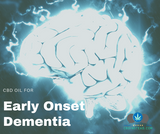Even if you live in a state that has gone legal, many doctors are still cautious when it comes to suggesting or recommending marijuana for treatment. This isn’t because the doctors are being paid under the table to fill the world with prescriptions, the dirty doctors are not as present in the field as one might think.
When you think about it, they go through years and years of school because they want to help people. The average doctor goes through 8 additional years of schooling after high school, and then have to spend 3-7 years in residency. Not only are they behind the desk for a considerable amount of time learning how to diagnose and treat, but they also practice beneath well-respected doctors who have made the mistakes and decisions that helped paved the way in the medical field. These aren’t all monsters; they aren’t all in it for the money, these people are dedicated to facts and logic to benefit humanity.
So if facts so bind them, why aren’t they prescribing marijuana left and right with all of these fantastic findings researchers and scientists report?? After WHO has declared it is safe to use, with videos of children mid seizure calming down after taking cannabis oil, why wouldn’t doctors jump at the chance to give this plant to everyone who asks for it?
The FDA
Medical marijuana consumption is still not approved by the FDA. The FDA has said that they understand that people are seeking for treatment through marijuana, but they don’t believe there is enough evidence that it is indeed safe and effective. We hope this changes over time after more research comes forward, like the Israeli study being done on Autism this year, they will have the evidence they require.
A good doctor is always going to keep the FDA in mind because it is the logical thing to do. The FDA exists to keep us safe and healthy, the same reason we have doctors.

Doctors Do What They Know
A doctor doesn’t have to be in practice for very long to know what works when it comes to treating a patient. They have been learning their whole life, and half of that learning was dedicated to helping people. They have been reading studies, learning under doctors who have had years under their belt to make mistakes, so they don’t have to. They are going to suggest treatment that they have seen work a hundred times whether in person or on paper. This decision doesn’t mean they are closed minded towards alternatives; it only means they are using their best judgment to preserve your life.
They Must Be Approved
Maybe you live in a state where it is allowed to get marijuana medically, but you can’t just go to any doctor. They are required to be approved to give recommendations. A doctor may be cannabis friendly, however, they are by law required to suggest or prescribe other treatments. If this is the case, you just need to find a doctor who is approved to give medical marijuana recommendations.
Can You Still Talk To Them?
As laws are changing and studies are surfacing, it is becoming easier to talk to your doctor about marijuana. They ask you if you use any drugs, and you may feel uncomfortable even saying marijuana when they categorize it with heroin, but that’s your cue. This information will give them a better idea of your health, especially because mixing marijuana with some prescription medications can have adverse effects. They cannot report you to the police or your job, either. If they did, you could probably sue them into a paycheck for life.
It’s essential you disclose any changes you make to your doctor whether it’s diet, medication, or your fitness routine. All of these factors play a huge role in your health and treatment plan. Marijuana is medicine and should be treated as such when you are using it for treatment.
There is one thing you should be cautious of, but something that isn’t set in stone. Considering marijuana is an illegal drug, not approved by the FDA, and under such a massive negative stigma having it on your medical file may hinder you in the future with insurance coverage. Of course, once it becomes a legal substance and is considered a valid medication by our government, this fear may no longer be a reality. However, we aren’t there yet, and that isn’t necessarily guaranteed considering you can still be denied coverage for taking antidepressants. It is imperative to have an open and honest conversation with your doctor, just be aware that it is recorded, so nothing surprises you.

What Is The Difference Between Prescribing Wee And Referring It?
At this moment, it is illegal to prescribe marijuana even if you live in a medical state. What they do is they give you a referral so that you can get a medical card. You take this card to your local dispensaries, and they have trained professionals there to help you find the strain that works best for you. It’s possible that one day a doctor will give you a script with CBD written on it, but for now, the goal is to get all states on board with recommendations.
When a doctor gives you a referral for marijuana, they don’t just send you on your way and say good luck. They make follow up appointments, just like if they were to prescribe you any pharmaceutical medication. The methods are slightly different in the process, but the concept is the same. Doctors are getting medication to their patients, and watching over them to make sure it works and isn’t hurting them.
Some doctors who live in illegal states will realize that marijuana works but know they can’t say anything about it. They may just tell you to move to Colorado or California where you can have access to the plant without any struggles.
What More Evidence Do Doctors and The FDA Need?
As the knowledgeable consumer, it might be infuriating that you preach night and day the benefits of cannabis and people higher up stay unmoved. We have seen with our own eyes videos of people getting instant relief. There are success stories all over the web, some of them doctors themselves using cannabis as treatment. The statistics are proving that marijuana is safer than one of the most abused substances in the world, alcohol. Why are we at this standstill?
It takes years for studies to go from a petri dish to live model studies. It also takes years to go from rats to people. The transfer rate from rat model to human isn’t 100%, so researchers are careful about what they put into people’s bodies. The FDA and Doctors do not want to give medication to someone that hasn’t been tested on a human being in a research environment. Since our bodies and brains are so precious; it would be unwise just to put any medication in someone’s body voluntarily or not.
You might be thinking, what about all of those harmful chemicals that are allowed? Like painkillers? Those apparently are addictive, yet anyone who is in pain is going to get opioid prescribed by default. The reasoning behind this is because opioids are incredibly effective. If taken responsibly for a short period, they can help people with extreme pain. It would be inhumane to take instant relief away from people who just suffered a severe car accident. Marijuana does treat chronic severe pain quickly, but it hasn’t been tested to withstand protruding bone.
There have been plenty of studies on opiates with real humans, and the results tell us we shouldn’t use them for long periods of time because they can cause damage and are addictive. These risks are unnecessary when you don’t need the heavy duty opiates, which is why the marijuana community wants to offer an alternative. It could cut back the numbers of people getting access to this drug, resulting in fewer fatalities. Even though this landslide of research makes it seem like we know so much about marijuana, the amount of research is nothing compared to what they have for opiates.
Human trials are where they make most concrete evidence if they do it correctly. That is what the doctors and FDA are waiting for, and this is good news. This means that they aren’t just saying no with no reason, and there is a good chance that the FDA can approve marijuana after their requirements are met.

Being a part of the marijuana movement isn’t being anti-doctor, anti-law enforcement or anti-government. It is finding a way where the people can coexist with them in a world where we are all satisfied and healthy, which is possible! Your doctor wants what’s best for you, but if you don’t agree with them or don’t like the way they treat you, there is nothing wrong with getting a second opinion if your insurance allows it. Until doctors start feeling comfortable, continue to spread the knowledge. Some so many people still have no idea what cannabis can do for them, and it could be the one thing that makes their life go back to normal.













